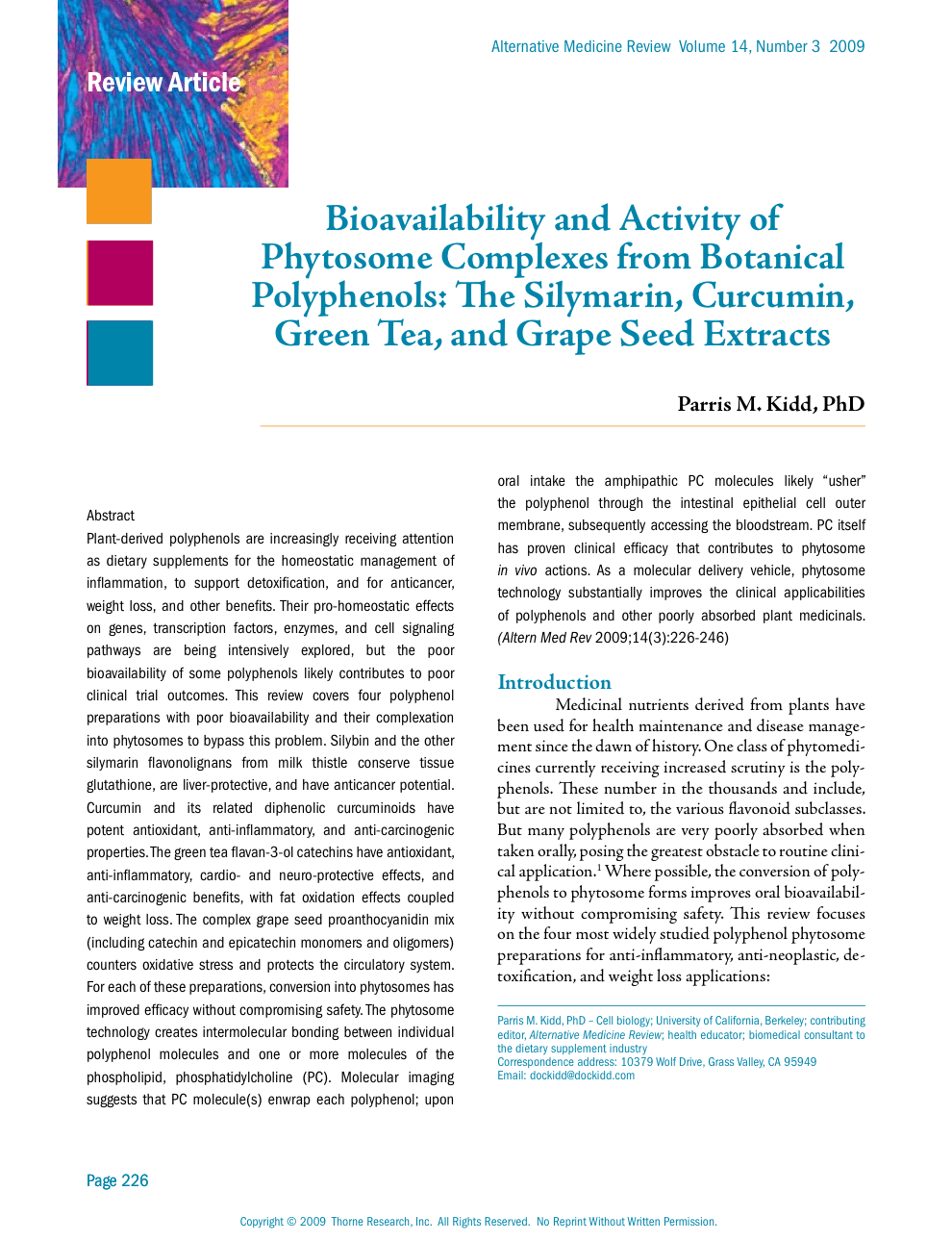Abstract
Plant-derived polyphenols are increasingly receiving attention as dietary supplements for the homeostatic management of inflammation, to support detoxification, and for anticancer, weight loss, and other benefits. Their pro-homeostatic effects on genes, transcription factors, enzymes, and cell signaling pathways are being intensively explored, but the poor bioavailability of some polyphenols likely contributes to poor clinical trial outcomes. This review covers four polyphenol preparations with poor bioavailability and their complexation into phytosomes to bypass this problem. Silybin and the other silymarin flavonolignans from milk thistle conserve tissue glutathione, are liver-protective, and have anticancer potential. Curcumin and its related diphenolic curcuminoids have potent antioxidant, anti-inflammatory, and anti-carcinogenic properties.Thegreenteaflavan-3-olcatechinshaveantioxidant, anti-inflammatory, cardio and neuroprotective effects, and anti-carcinogenic benefits, with fat oxidation effects coupled to weight loss. The complex grape seed proanthocyanidin mix (including catechin and epicatechin monomers and oligomers) counters oxidative stress and protects the circulatory system. For each of these preparations, conversion into phytosomes has improved efficacy without compromising safety. The phytosome technology creates intermolecular bonding between individual polyphenol molecules and one or more molecules of the phospholipid, phosphatidylcholine (PC). Molecular imaging suggests that PC molecule(s) enwrap each polyphenol; upon Parris M. Kidd, PhD oral intake the amphipathic PC molecules likely “usher” the polyphenol through the intestinal epithelial cell outer membrane, subsequently accessing the bloodstream. PC itself has proven clinical efficacy that contributes to phytosome in vivo actions. As a molecular delivery vehicle, phytosome technology substantially improves the clinical applicabilities of polyphenols and other poorly absorbed plant medicinals. (Altern Med Rev 2009;14(3):226-246)

